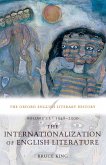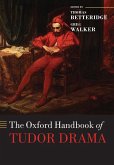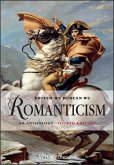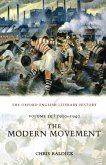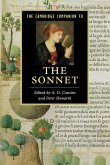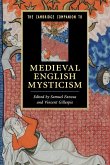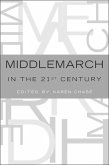English Literature in the 1960s soon threw off its post-war weariness and the tepid influences of the previous decade. New voices, new visions, and new commitments profoundly reshaped writing during the sixties, and throughout the rest of the century. Drama thrived on its rapidly rebuilt foundations. New freedoms of style and form revitalised fiction. Poetry, too, gradually recovered the variety and inventiveness of earlier years.
As well as comprehensively charting these changes in the literary field, Randall Stevenson persuasively pinpoints their origins in the historical, social, and intellectual pressures of the times. Literary developments are revealingly related to the wider evolution and profound changes in English experience in the late twentieth century - to shadows of war and loss of empire; declining influences of class; shifting relations between the genders; emergent minority and counter-cultures; and the
broadening democratization of contemporary life in general.
Analyses of the rise of literary theory, of publishing and the book trade, and of the pervasive influences of modernism and postmodernism contribute further to an impressively thorough, insightful description of writing in the later twentieth century - a literary period Stevenson shows to be far more imaginative and exciting than has yet been recognized. Lucid, accessible, and engaging, this volume of the Oxford English Literary History presents a unique illumination of its age - one
we have lived through, but are only just beginning to understand. The first full account of its period, it will set the agenda for discussion of late twentieth-century literature for many years to come.
Hinweis: Dieser Artikel kann nur an eine deutsche Lieferadresse ausgeliefert werden.
As well as comprehensively charting these changes in the literary field, Randall Stevenson persuasively pinpoints their origins in the historical, social, and intellectual pressures of the times. Literary developments are revealingly related to the wider evolution and profound changes in English experience in the late twentieth century - to shadows of war and loss of empire; declining influences of class; shifting relations between the genders; emergent minority and counter-cultures; and the
broadening democratization of contemporary life in general.
Analyses of the rise of literary theory, of publishing and the book trade, and of the pervasive influences of modernism and postmodernism contribute further to an impressively thorough, insightful description of writing in the later twentieth century - a literary period Stevenson shows to be far more imaginative and exciting than has yet been recognized. Lucid, accessible, and engaging, this volume of the Oxford English Literary History presents a unique illumination of its age - one
we have lived through, but are only just beginning to understand. The first full account of its period, it will set the agenda for discussion of late twentieth-century literature for many years to come.
Hinweis: Dieser Artikel kann nur an eine deutsche Lieferadresse ausgeliefert werden.
For much of the period covered here the literature of England was dogged by an all-pervading sense of failure and decline. In Stevenson's analysis, a "misplaced nostalgia" impeded the progress of English drama, fiction and especially poetry. Philip Larkin mourned an "England gone", and he cast a long shadow over English verse. "English literature was never more static than under the influence of the Movement," says Stevenson. "If the later 20th century proved a difficult period for poetry, it was in large measure because it took so long to realise this, and move on." Guardian


